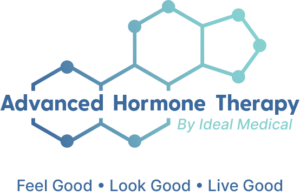Good news! There are plenty of opportunities for doctors to work together to bring about positive change surrounding the negative impact of the 2002 Women’s Health Initiative study. This study single handedly stopped 70-80% of women from participating in hormone replacement therapy (HRT), and abruptly stopped many doctors from offering it to patients out of fear. Thus, many women have suffered without relief.
Some good came out of the WHI by identifying the risks of synthetic progesterone, and specific types of non-bioidentical estrogens. However, twenty years later multiple books and studies subsequent to the WHI indicate overwhelming positive benefits to HRT where the WHI identified high risks.
The WHI study can no longer support the claims it once tried to accomplish. Doctors, scholars and statisticians have indicated the WHI suffers from multiple flaws including: errant data gathering surrounding age groups and health histories, confounding presentation and biased interpretation of results, statistically insignificant outcomes being reported as significant, and absence of testosterone inquiry. Some of the WHI investigators themselves have come out in support of HRT.
The Big Questions: Why are doctors still fearful of prescribing HRT to patients, and how can we change that together?
- In 2002 when the WHI results were announced the media marketed the fear and it continues to work
- The WHI results crept into medical school education
- The WHI results were and continue to be misinterpreted
- Many OB GYNs and Primary Care Physicians may not be up-to-date on available research findings
- Some practitioners are not open and curious about advances in the practice of medicine
These are just a few possibilities. Sadly, many patients rely upon their doctors to guide them, which can result in acceptance of misinformation about their health and wellbeing.
As expected, there are benefits and risks to any form of treatment. Special care must be taken to secure accurate information, utilize professional guidance, and make individualized adjustments when necessary to attain optimal outcomes.
In an effort to alleviate the fear and resistance caused by the WHI study, the following links to research articles provide an array of supporting evidence for HRT:
- The Controversial History of Hormone Replacement Therapy
https://www.ncbi.nlm.nih.gov/pmc/articles/PMC6780820/ - The mortality toll of estrogen avoidance: an analysis of excess deaths among hysterectomized women aged 50 to 59 years
https://pubmed.ncbi.nlm.nih.gov/23865654/ - Testosterone therapy in women: myths and misconceptions
https://pubmed.ncbi.nlm.nih.gov/23380529/ - The impact of testosterone imbalance on depression and women’s health
https://pubmed.ncbi.nlm.nih.gov/11955793/ - Transdermal testosterone therapy improves well-being, mood, and sexual function in premenopausal women
https://pubmed.ncbi.nlm.nih.gov/14501599/#:~:text=Mean%20total%20testosterone%20levels%20during,low%20libido%20and%20low%20testosterone - Metabolic and hormonal effects of 25-mg and 50-mg 17 beta-estradiol implants in surgically menopausal women
https://pubmed.ncbi.nlm.nih.gov/3658285/ - Increase in bone mass after one year of percutaneous oestradiol and testosterone implants in post-menopausal women who have previously received long-term oral oestrogens
https://pubmed.ncbi.nlm.nih.gov/1420016/ - A cross-sectional study of the effects of long-term percutaneous hormone replacement therapy on bone density
https://pubmed.ncbi.nlm.nih.gov/1945198/ - Androgens and Hypertension in Men and Women: a Unifying View
https://pubmed.ncbi.nlm.nih.gov/28455674/ - Testosterone and breast cancer prevention
https://pubmed.ncbi.nlm.nih.gov/26160683/ - Estrogen replacement therapy in patients with early breast cancer
https://pubmed.ncbi.nlm.nih.gov/12193914/ - Sex differences in Alzheimer’s-related Tau biomarkers and a mediating effect of testosterone
https://www.ncbi.nlm.nih.gov/pmc/articles/PMC7304096/ - Effect of long-term estrogen therapy on dopaminergic responsivity in post-menopausal women–a preliminary study
https://pubmed.ncbi.nlm.nih.gov/15288710/ - Breast Cancer Incidence Reduction in Women Treated with Subcutaneous Testosterone: Testosterone Therapy and Breast Cancer Incidence Study
https://pubmed.ncbi.nlm.nih.gov/33870115/ - Progesterone for treatment of symptomatic menopausal women
https://pubmed.ncbi.nlm.nih.gov/29962247/ - New evidence for cardiac benefit of postmenopausal hormone therapy
https://pubmed.ncbi.nlm.nih.gov/28042727/
This list provides a good start to the investigation and collective effort to change attitudes and beliefs about prescribing HRT. There are many, many more studies that have been published, and are ongoing — that means more great news ahead!
Please note: While this list is by no means exhaustive, it provides a resource and opportunity for doctors and patients to conduct additional exploration. We also recommend that it be shared with others who may be suffering from stubborn symptoms that are not responding to conventional treatment.
Experience the benefits of bioidentical HRT at Ideal Medical Advanced Hormone Therapy, by calling us at 1-775-229-8683 to discuss your needs and to set up an appointment. You deserve to feel great. Let’s make that happen, together. Feel good. Look good. Live good.
As discussed by: Kevin Brown, DO, FACOI
Written by: Anne Kruse, MS
Photo Credit: Josh Hild on Pexels.com
